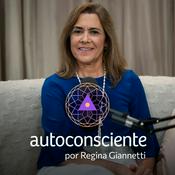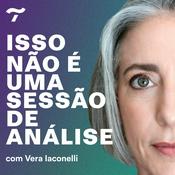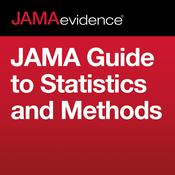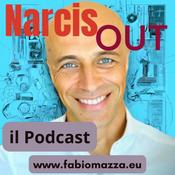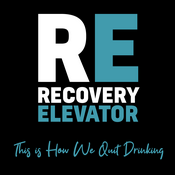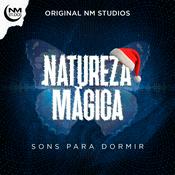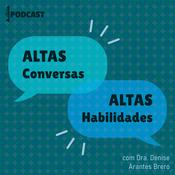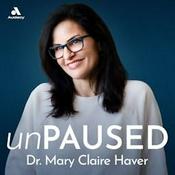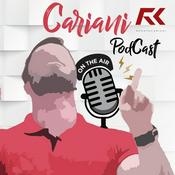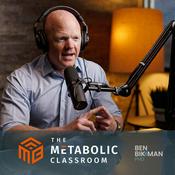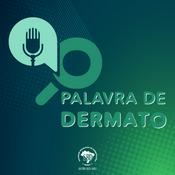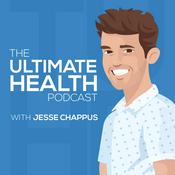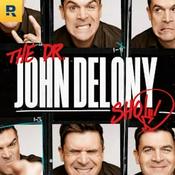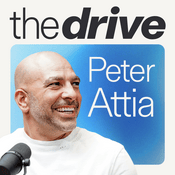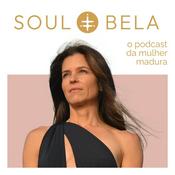Mind Body Marathon: Running, Health & Human Performance
Dr. Leo Kormanik
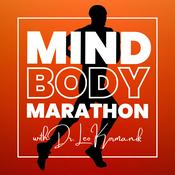
Último episódio
95 episódios
The Long Run: Conversations with Dr. Leo Kormanik, Dr. Matt Pisanelli, and Zach Goulet
10/2/2026 | 48minWhat happens when three friends talk through a long run? This super entertaining and funny episode touches upon that similar feeling we've all had on long runs when any topic is fair game and stories unfold.
In today's episode, we engage in a candid and free-flowing dialogue that explores a myriad of topics, ranging from personal anecdotes to the intricacies of athletic training. Dr. Leo Kormanik is joined by his esteemed colleagues, Dr. Matt Pisanelli and Zach Goulet, as they navigate the complexities of life, friendship, and the occasional humorous mishaps that accompany their experiences. A salient point that emerges from our discussion is the evolving landscape of injury management in sports, highlighting how contemporary practices enable athletes to train through setbacks while maintaining peak performance. We also delve into the realm of literature, sharing insights on various books that have piqued our interests, thus illuminating the interplay between personal growth and professional development. As we meander through these topics, it becomes evident that the bonds of friendship not only enhance our conversations but also enrich our lives in profound ways. In a candid and unstructured format, Dr. Leo Kormanik, Dr. Matt Pisanelli, and Zach Goulet engage in a multifaceted discussion that spans a broad spectrum of subjects, weaving together elements of their personal lives and professional insights. The episode opens with a light-hearted acknowledgment of the time elapsed since their last gathering, setting a tone of familiarity and rapport. The transition to a new studio is humorously noted, reflecting the ongoing changes in their lives and the challenges that accompany such transitions. As the conversation moves forward, Dr. Pisanelli introduces the subject of indoor track, sharing his enthusiasm for returning to work with high-caliber athletes. He elaborates on the unique pressures and expectations that come with this role, highlighting the psychological aspects of coaching elite athletes. This discussion segues into deeper themes surrounding the mental resilience required in sports, as well as the importance of adaptability in the face of setbacks. The trio reflects on their respective experiences within the world of athletics, emphasizing the significance of cultivating a strong mindset in both training and competition. In a delightful juxtaposition, the episode also features personal anecdotes that provide insight into the joys and challenges of parenting. Dr. Kormanik shares humorous stories about his adopted son, Tommy, illustrating the unpredictability and hilarity that often accompany raising young children. The intermingling of serious discussions about sports with lighthearted parenting tales creates a dynamic and engaging listening experience. This episode ultimately encapsulates the essence of friendship, personal growth, and the shared journey of navigating both the complexities of professional life and the joys of family.
Takeaways:
In our recent episode, we engaged in a candid discussion about the evolving dynamics of friendship amid the passage of time, reflecting on how our lives have diverged yet remained interconnected.
The topic of injury management in competitive athletics was thoroughly examined, emphasizing the necessity of adapting training approaches to accommodate the realities of physical setbacks.
We explored the profound psychological aspects of competitive sports, particularly how athletes cope with performance pressures and the expectations placed upon them by themselves and others.
Insight was shared regarding the significance of a supportive community in both...- Interested in a great discussion about the 2026 Super Bowl? This show will help you best navigate this great matchup with interesting insights!
The discussion centers around the highly anticipated Super Bowl featuring the Seattle Seahawks and the New England Patriots, alongside a retrospective on the tumultuous 2025-2026 NFL season. My esteemed colleague and lifelong football fan, Brian Passel, and I, Leo Kormanik, delve into the intricacies of the teams’ performances leading up to this grand event, illuminating the distinctive strengths and weaknesses that may influence the outcome. The conversation also touches on the remarkable resurgence of both teams, particularly focusing on the strategic decisions made by their respective coaches, which have greatly impacted their trajectories this season. As we explore the nuances of player dynamics, we reflect on the pivotal moments that have defined this season, setting the stage for the forthcoming championship clash. Join us as we dissect the elements that could dictate the fate of this monumental game, offering our predictions while analyzing the broader implications for the future of the NFL. The conversation between Leo Kormanik and Brian Passel delves into the intricacies of the 2025-2026 NFL season and its culminating event, the Super Bowl, where the Seattle Seahawks are set to face the New England Patriots. Both hosts, long-time friends and ardent football enthusiasts, engage in a comprehensive analysis of the season's highlights, with particular attention to the strategic developments of the teams involved. The discussion provides rich insights into the performance of key players and coaching strategies, particularly focusing on the anticipated clash between the Seahawks' robust defense and the Patriots' evolving offensive tactics. The episode is not merely a recounting of statistics; rather, it is an exploration of the narratives that have shaped the season, including the remarkable journey of the quarterbacks, the significance of momentum, and the psychological factors at play as the teams prepare for the championship showdown. The hosts' camaraderie and mutual respect for the game shine through, making this episode a must-listen for any football aficionado, as they dissect not only the gameplay but also the broader implications of this season in the context of NFL history.
Takeaways:
In our discussion, we delve into the historical context of the Super Bowl matchup between the Seattle Seahawks and the New England Patriots, reflecting on their previous encounters and the implications for the upcoming game.
We examine the unpredictable nature of the NFL, particularly in relation to the 2025-2026 season, where unexpected performances and team dynamics can significantly alter expectations and outcomes.
The conversation highlights the importance of veteran leadership in high-pressure situations, especially in the context of the Super Bowl, where experience can greatly influence a team's performance.
We analyze the evolving strategies within the league, particularly regarding quarterback performance and the impact of salary cap dynamics on team composition and success.
The podcast emphasizes the significance of offensive and defensive line performance, asserting that these elements often dictate the flow and outcome of crucial games in the NFL.
We share insights on the psychological aspects of the game, discussing how players' mindsets and external pressures can affect their performance during... - Ever wonder why gluten-free is so popular and prominent now? Ever wonder if going gluten-free is right for you?
Dr. Leo Kormanik articulates his perspective on the contentious issue of gluten in our diets, addressing whether individuals should contemplate its elimination. He elucidates the nature of gluten, primarily found in wheat, barley, and rye, and reflects upon his own journey with gluten-free living, which he adopted due to personal health benefits rather than necessity. Throughout the discourse, Dr. Kormanik emphasizes the importance of understanding one's unique physiological responses to gluten, particularly for those with pre-existing sensitivities or chronic conditions. He posits that for many, especially those without significant inflammatory issues, the consumption of gluten may not pose a detrimental effect. The episode serves as a nuanced exploration of dietary choices, urging listeners to engage in self-assessment regarding their relationship with gluten and consider a tailored approach to their dietary habits. The complexities of gluten consumption are examined in this thought-provoking episode featuring Dr. Leo Kormanik, who articulates his perspectives on the necessity of gluten in modern diets. As gluten—a composite protein primarily derived from wheat, barley, and rye—has emerged as a contentious subject within nutritional discourse, Dr. Kormanik provides both a personal narrative and a scientific overview that invites listeners to reflect critically on their dietary choices. He recounts his own journey towards a gluten-free lifestyle, catalyzed by an enlightening experience during his chiropractic education, where he was first introduced to the concept of gluten's potential adverse effects on health. Dr. Kormanik further elucidates the biochemical underpinnings of gluten, particularly focusing on gliadin, a component that can contribute to various gastrointestinal disorders. His insights reveal that while some individuals may experience significant negative reactions to gluten, others may remain largely unaffected. The episode also highlights the stark contrasts in food production and processing practices between the United States and other countries, which may inform the varying levels of tolerance towards gluten. This disparity, particularly regarding the use of glyphosate in American agriculture, is presented as a critical factor influencing health outcomes associated with gluten consumption. Throughout the dialogue, Dr. Kormanik emphasizes the importance of individualized dietary assessments, advocating for a thoughtful approach to gluten intake. He urges listeners to consider their unique health conditions, particularly regarding inflammation and gut health, when determining their relationship with gluten. By promoting a trial elimination of gluten for those experiencing discomfort, he encourages a personalized approach that prioritizes health and well-being. This episode serves as a comprehensive exploration of the role of gluten in diet, empowering listeners to make informed decisions based on their health and experiences.
Takeaways:
Dr. Leo Kormanik shares his personal journey with gluten and its impact on health.
The discussion centers around whether individuals should consider eliminating gluten from their diets.
Gluten is primarily found in wheat, barley, and rye, and its effects vary among individuals.
Dr. Kormanik emphasizes that the presence of glyphosate in American wheat may contribute to health issues.
He suggests that those with chronic inflammation or gut sensitivities might benefit - Ever wonder how to incorporate lifting into your training routine?
The primary focus of this discussion revolves around the strategic integration of lifting into athletic training, particularly for runners and other sports participants. We, Dr. Leo Kormanik, alongside my esteemed co-hosts, Dr. Jared Bugaj and Dr. Sam Snyder, delve into the multifaceted benefits of strength training, elucidating how it can enhance overall performance, mitigate injury risks, and promote long-term physical resilience. Our discourse encompasses the importance of tailoring lifting routines to align with specific athletic goals, emphasizing that for distance runners, the objective is not merely to build mass but to enhance muscular endurance and neurological efficiency. We further explore the nuanced relationship between lifting and cardiovascular training, advocating for a balanced approach that harmonizes these distinct yet complementary modalities. Throughout this episode, we aim to provide invaluable insights into optimizing one’s training regimen, thereby fostering both immediate performance improvements and enduring fitness benefits. An erudite conversation among Dr. Leo Kormanik, Dr. Jared Bugaj, and Dr. Sam Snyder unfolds in this thought-provoking episode, wherein they dissect the pivotal role of lifting in the context of athletic performance, with a particular focus on its implications for runners. The speakers adeptly navigate through the entrenched dichotomy that often exists between strength training and endurance sports, positing that lifting should be regarded as an essential complement to running rather than a divergent pursuit. They meticulously outline the myriad benefits of strength training, which extend beyond mere hypertrophy to encompass improvements in joint stability, muscle resilience, and even hormonal balance, thereby fostering a more holistic approach to athletic conditioning. One salient point raised during the discussion is the age-related adaptability of strength training protocols. Dr. Kormanik articulates that while younger athletes may benefit from foundational strength development through lifting, older athletes must recalibrate their training strategies to mitigate the physiological declines associated with aging. He notes that strength training can serve as a bulwark against the natural decrease in muscle mass and testosterone, thereby enhancing longevity in athletic performance. Dr. Bugaj further elucidates the mechanisms through which lifting engenders positive adaptations, particularly emphasizing the release of anabolic hormones that facilitate recovery and growth, which are crucial for runners seeking to optimize their training regimens. The episode culminates in a pragmatic discussion surrounding the application of lifting protocols in conjunction with running training. The speakers offer strategic insights into how athletes can effectively integrate strength training sessions into their weekly routines, advocating for a balanced approach that prioritizes recovery while still engaging in the rigors of resistance training. They underscore the importance of specificity in exercise selection, tailoring lifting exercises to enhance the particular demands of running, thus providing listeners with actionable strategies to elevate their performance. This episode stands as a testament to the vital interplay between strength and endurance, urging athletes to embrace a multifaceted training philosophy that encompasses both lifting and running in pursuit of athletic excellence.
Takeaways:
Incorporating strength training into a running regimen can significantly enhance overall performance and resilience.
Lifting not only benefits athletic performance but also contributes positively to bone density and hormone regulation.48.6 Miles of Disney Magic: A Reflection on the Dopey Challenge Experience with Dr. Leo Kormanik and Samua Kormanik
13/1/2026 | 35minEver wonder what it's like to do a marathon in Disney World? Or run the Dopey Challenge of 48.6 miles in 4 days?
Dr. Leo Kormanik and his wife, Samua Kormanik, recount their recent experience participating in the Dopey Challenge, a remarkable feat that encompasses a total of 48.6 miles over the course of four days. This event, organized by RunDisney, combines a 5K, a 10K, a half marathon, and a full marathon, all infused with the enchanting spirit of Disney. The couple reflects on the unique atmosphere of the race, where participants often prioritize enjoyment and camaraderie over competitive times, resulting in a distinctively festive environment. They discuss the challenges they faced, particularly the demanding early morning wake-up calls, as well as the exhilarating moments of stopping to take photographs with beloved Disney characters along the route. Ultimately, their narrative serves to encourage listeners to consider the Dopey Challenge not merely as a test of endurance, but as an opportunity for joyful engagement within the magical realm of Disney. The Dopey Challenge, a formidable yet exhilarating undertaking, has captivated runners and Disney enthusiasts alike. As I recount my recent experience alongside my wife, Samua Kormanik, we delve into the intricacies of running approximately 48.6 miles over the span of four days, culminating in a unique blend of physical exertion and Disney magic. The challenge encompasses a 5K, a 10K, a half marathon, and a full marathon, each event meticulously designed to traverse the enchanting landscapes of Disney parks. The initial hurdles we faced were not merely the physical demands of the distances, but rather the early morning awakenings that seemed to sap our energy before the races even commenced. However, the vibrant atmosphere, characterized by runners clad in whimsical costumes, transformed the experience into a celebration rather than a mere competition. The essence of the Dopey Challenge lies in its community spirit; it is a gathering of individuals united by a shared passion for running and the joy of Disney. We shared anecdotes of our adventures along the courses, including the strategic stops to engage with beloved characters, turning what could have been a grueling marathon into a delightful escapade filled with laughter and camaraderie. With each mile marked by the exuberant presence of fellow runners and the cheer of bystanders, the race transformed into a cherished memory rather than a singular test of endurance. Our discussions reflect the underlying theme of this episode: the Dopey Challenge is not merely about crossing the finish line but embracing the journey, the friendships forged, and the magical moments experienced along the way.
Takeaways:
The Dopey Challenge consists of a remarkable total of 48.6 miles over four consecutive days, showcasing a unique blend of endurance and Disney magic.
Participants often experience a different atmosphere at Disney races compared to traditional marathons, emphasizing enjoyment over competitive timings.
The integration of character photo opportunities throughout the race serves as a delightful distraction, enhancing the participants' overall experience.
One of the greatest challenges during the Dopey Challenge is the early morning wake-up calls required for the races, which can be quite taxing on runners.
A notable aspect of the Disney races is the low dropout rate, attributed to the inclusive and supportive environment among the participants.
TheMais podcasts de Saúde e fitness
Podcasts em tendência em Saúde e fitness
Sobre Mind Body Marathon: Running, Health & Human Performance
Running is more than just putting one foot in front of the other. It’s about discovering the connection between your body, your mind, and your potential. The Mind Body Marathon Podcast is where running performance, sports psychology, injury prevention, strength training, recovery strategies, nutrition, and mindset coaching all come together to help you become the strongest, healthiest, and most resilient version of yourself. Hosted by Dr. Leo Kormanik, a sports chiropractor, running coach, and former elite marathoner who competed at the 2012 U.S. Olympic Trials with a personal best of 2:18, this show is built on decades of experience in both running and treating athletes. As founder of Ohio Sports Chiropractic and Rehab and creator of Faster Without Fail, Leo has worked with runners from beginners to Olympians, helping them overcome injuries, train smarter, and unlock their potential. His perspective is unique, blending clinical knowledge, coaching insight, and personal lessons learned from years of chasing high performance while battling setbacks along the way. Each episode explores the full spectrum of endurance sports and wellness. You’ll hear conversations about marathon training strategies that fit into real life, the science of injury prevention, the role of sports psychology in performance, and the importance of strength and conditioning for distance runners. You’ll learn recovery strategies ranging from cold plunges and sleep optimization to mental resets that restore balance. Nutrition is covered in a practical, athlete-friendly way, from fueling long runs to racing with confidence. Mental health and overall fitness are never ignored, as we explore how mindset, lifestyle, and performance are all intertwined. What makes the Mind Body Marathon Podcast different is the way it connects all of these elements. Running is not just about mileage and splits; it’s about sustaining your health, building resilience, and developing an endurance mindset that impacts every area of your life. This show goes deeper than workouts and race results. It’s about equipping you with evidence-based tools and real-world insights that help you train with purpose, recover with intention, and push your limits without breaking down. Episodes include solo deep dives from Dr. Leo where he breaks down the latest science in running, training, and rehab, as well as interviews with athletes, coaches, nutritionists, sports psychologists, and medical professionals. Guests have included Olympic qualifiers, national champions, and respected voices across the endurance world, each sharing stories of triumph, lessons from setbacks, and strategies that listeners can immediately apply. At its core, this podcast is about empowerment. Running teaches discipline, resilience, and the ability to face challenges head-on, but it also connects us to a larger community of people striving for similar goals. The Mind Body Marathon Podcast offers not just practical knowledge but also encouragement and motivation. Whether you are chasing a personal best, battling back from injury, balancing training with work and family, or simply curious about the science of human performance, this podcast is designed for you. If you’re ready to go beyond logging miles, if you want to train with intention, race with confidence, and build resilience that extends far past the finish line, then this podcast is for you. Tune in each week and join a growing community of runners and athletes who are redefining what it means to pursue health, performance, and personal excellence. The Mind Body Marathon Podcast is your guide to running, wellness, and human performance — a place where science meets story, and where your journey as a runner becomes a path toward living stronger in both body and mind.Site de podcastOuça Mind Body Marathon: Running, Health & Human Performance, MuzyCAST e muitos outros podcasts de todo o mundo com o aplicativo o radio.net

Obtenha o aplicativo gratuito radio.net
- Guardar rádios e podcasts favoritos
- Transmissão via Wi-Fi ou Bluetooth
- Carplay & Android Audo compatìvel
- E ainda mais funções
Obtenha o aplicativo gratuito radio.net
- Guardar rádios e podcasts favoritos
- Transmissão via Wi-Fi ou Bluetooth
- Carplay & Android Audo compatìvel
- E ainda mais funções


Mind Body Marathon: Running, Health & Human Performance
Leia o código,
baixe o aplicativo,
ouça.






